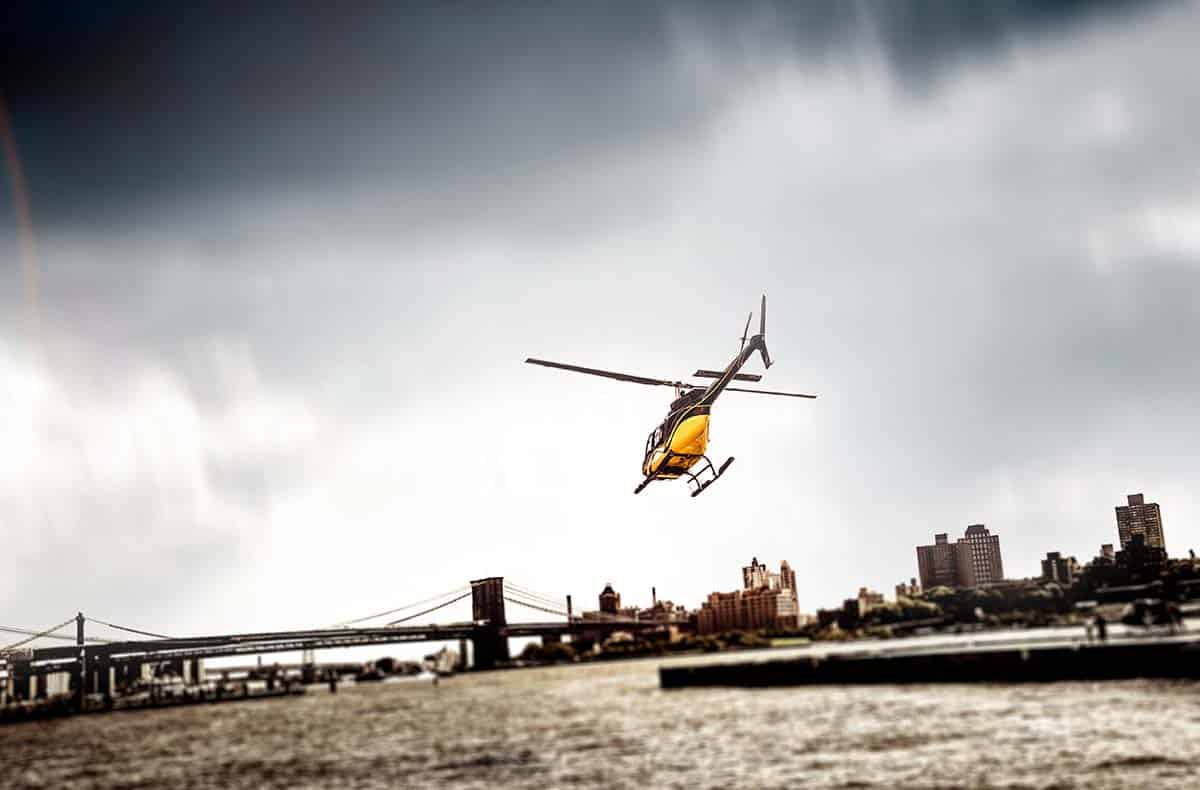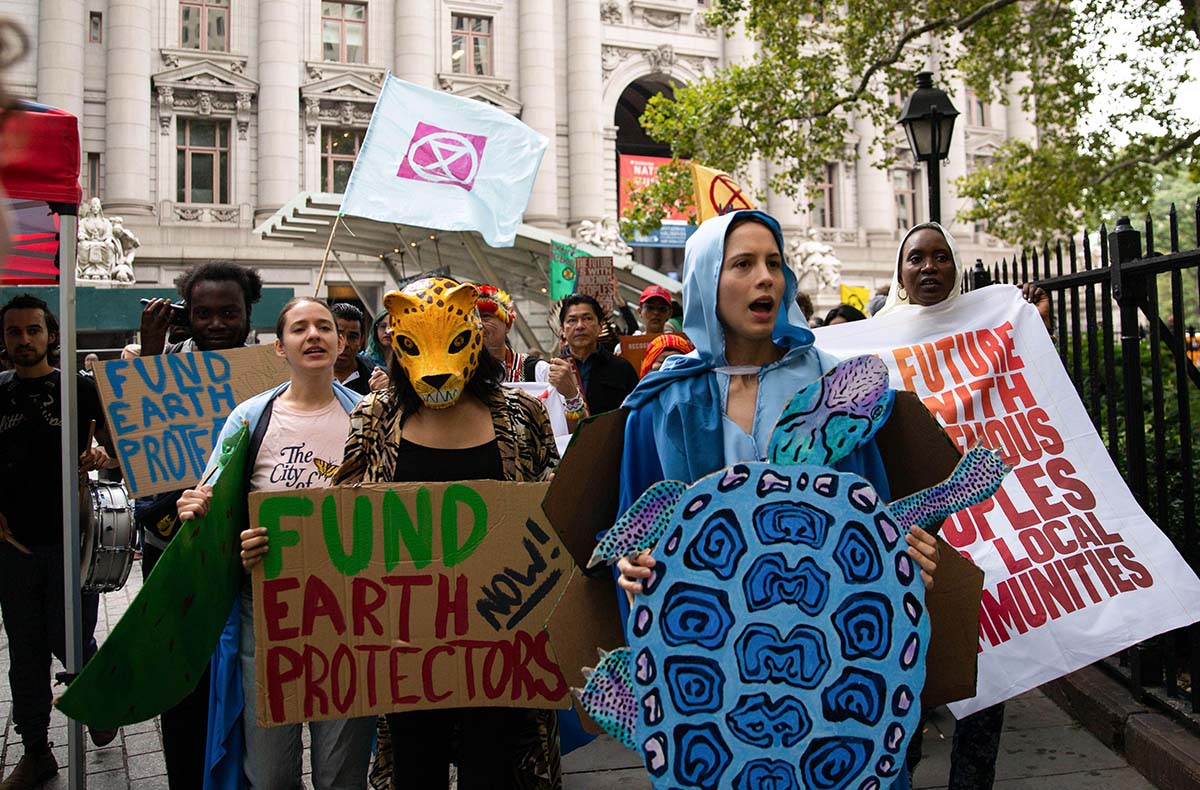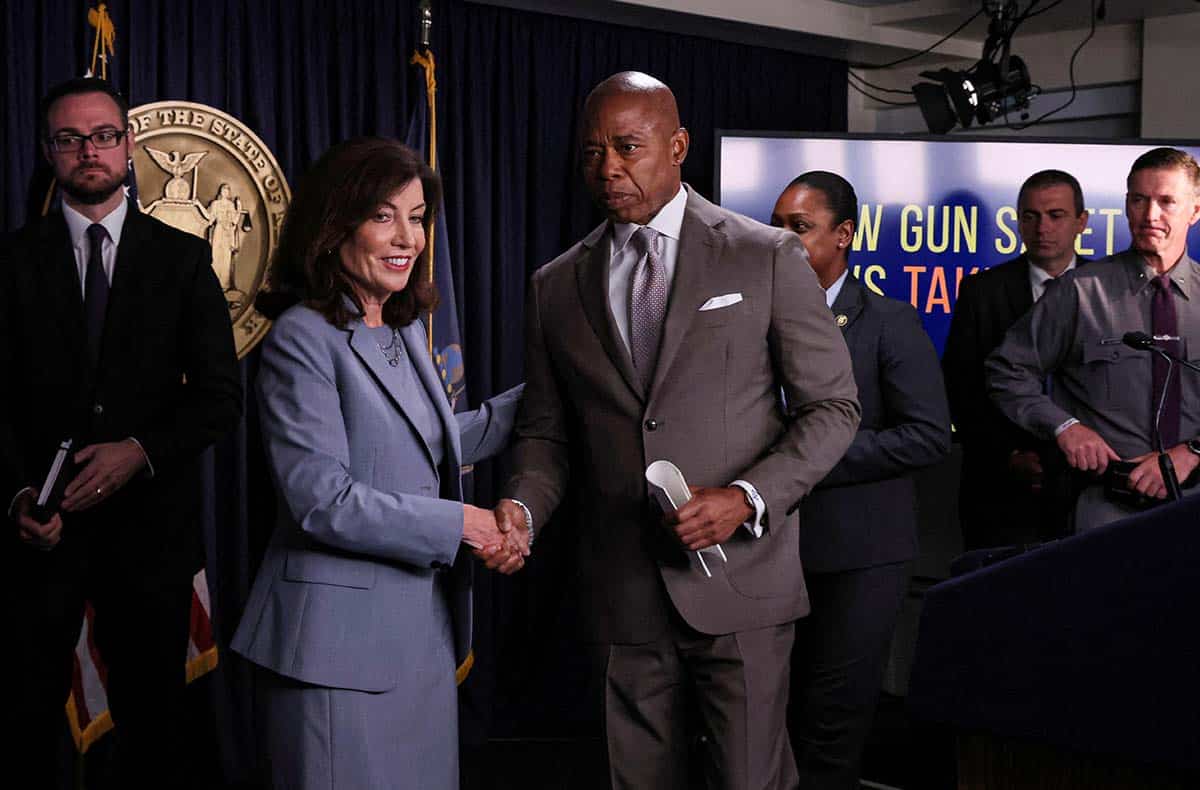
Perhaps it was inevitable, in a year when the climate crisis and the cost of living crisis reached new levels of urgency, that private aviation would become a hot-button issue. Even before the existence of an account tracking his jet goaded Elon Musk into a purge that journalist Ken Klippenstein dubbed “the night of the long hair plugs,” 2022 saw some of the Western Hemisphere’s biggest celebrities take heat for their private jets’ emissions. So far, the online callouts haven’t translated into policy, but the New York City Council may soon act to cut down on private flights at the expense of the uber-rich.
“I wouldn’t say that helicopter travel is the single most pressing issue facing the City of New York,” City Council Member Lincoln Restler said. “But it is a darn solvable issue that would have beneficial impacts on our communities, on our environment, and on our quality of life.”
Restler is the prime sponsor of a bill that would prohibit non-essential helicopter traffic in the skies over New York City. He represents the 33rd District, which lies directly across the East River from the city’s busiest heliport and includes much of Brooklyn’s shoreline, from Greenpoint to Cobble Hill. Restler said that the pandemic-induced lapse in other day-to-day noises revealed the extent of helicopter-generated noise pollution to him and his neighbors. Anyone who’s spent a summer afternoon in Prospect Park will know what he’s talking about.
“We were overwhelmed with helicopter noise all the time, whether it was during BLM protests, or news choppers, or other forms of helicopter travel happening over our communities,” Restler said. “I would go for walks in Brooklyn Bridge Park and increasingly notice that there were just constantly helicopters hanging out up above, making it hard to have a conversation.”
The conversations that Restler did manage to have with his constituents confirmed what city data indicate: Brooklynites are fed up with noise and air pollution. Only a tiny fraction of New Yorkers will ever use the Downtown Manhattan Heliport or the East 34th St Heliport, both of which are city-owned, but those who do are responsible for far more emissions than the average citizen, even those who drive. According to Restler’s office, helicopter flights originating in Manhattan combine to burn over 600,000 gallons of fuel every year. All that, for the sake of a few thousand real-life Kendall Roys who don’t want to take the Long Island Expressway (or, God forbid, the Long Island Railroad).
“When you consider that one helicopter idling is the equivalent of 40 cars, you realize quickly that this is a major environmental issue that needs to be addressed,” Restler said.
On its own, the city government lacks the authority to ban all private helicopter flights over its airspace. Sightseeing flights are already prohibited from the 34th Street heliport and from flying over land within the city limits, but New Jersey-based tourist flights—a fixture of the skies over New York Harbor and the Hudson River—would not be affected by city laws. Jersey-based tourism companies would be spared, but the bill would be terrible news for those accustomed to paying between $3,350 and $5,000 for a lift from the Financial District to the Hamptons. Such flights have become big business over the last decade, with Zip Aviation, Blade, and Über advertising private flights to Long Island at a cost higher than the city’s median monthly rent.
Supporters of the industry say that the ban would send “a terrible signal” to the “business community of Manhattan” and point to the roughly $1-2 million per year that each helipad generates for the city. But lawmakers aren’t convinced that the combined irritation and air pollution are worth it.
“New Yorkers want a full ban on non-essential flights, and I stand with them,” said Council Member Alexa Avilés, whose 38th District includes Sunset Park and Red Hook. “It’s absurd that we’re letting this happen in exchange for $1 million in revenue.”
At the time of writing, 23 co-sponsors have signed onto Restler’s bill, a substantial bloc in the city’s 51-member council. Supporters represent a range of neighborhoods and political views, from Avilés, a South Brooklyn socialist, to anti-vax nutbar Vickie Paladino, a Republican from Northeast Queens. It’s worth noting that the citizens of East Hampton, where many of these flights land, have also organized against rideshare-style helicoptering. The town is currently waging a legal battle—which some have dubbed “Millionaires v. Billionaires”—to privatize its airport in order to curb private helicopter flights.
Indeed, Restler’s bill echoes a growing demand for the ultra-wealthy to justify their exorbitant emissions. Last July, after the public learned of several quick, emissions-intensive flights logged by his private jet, Drake defended himself by revealing that he wasn’t even on the plane. The same critics soon came for Kylie Jenner, only to move on to Taylor Swift after a study labeled the singer the “biggest celebrity CO2 polluter of the year” for the 170 flights her private jet undertook in less than eight months. Swift’s explanation that she often lent her jet to her friends did little to cool the controversy during one of the hottest summers in living memory.
Meanwhile, the French government has moved to shut down unnecessary flights, albeit with limited success. Lawmakers originally intended to ban eight short flights out of Paris along routes also covered by trains but succeeded in blocking only three. Many have pushed to ban private flights between Paris and the Riviera, a continental equivalent to the Manhattan-Hamptons circuit, but have yet to pass such a law.
Restler, a staunch proponent of bikes and public transportation, said that banning private helicopter flights was just one part of a broad transportation agenda. Other planks in his platform include “a network of truly protected bike lanes,” “deepening investments” in the subway, and encouraging New Yorkers to use the city’s functional but oft-overlooked ferry system.
Gov. Kathy Hochul recently vetoed a similar measure at the state level, which would have banned nonessential flights from taking off from the 30th St Heliport and empowered residents to sue aviation companies over noise complaints. Her justification for the veto cited the federal government’s role in regulating New York’s airspace, an argument that could be made against Restler’s City Council bill. Unlike the state-level bill, however, Restler’s proposed legislation targets city-owned helipads, using the Department of Small Business Services’ authority to restrict flights.
While he harbors little sympathy for the uber-wealthy, Restler struck a conciliatory note when asked if he had a message for the targets of his bill:
“Join us on the ground,” he said. “It’s not too bad!”



